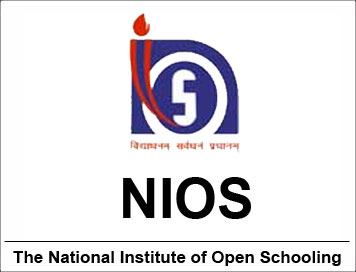(Download) NIOS Syllabus Of Home Science Senior Secondary
Disclaimer: This website is NOT associated with CBSE, for official website of CBSE visit - www.cbse.gov.in
(Download) NIOS Syllabus Of Home Science Senior Secondary
Home Science
1. RATIONALE
Home Science is a Subject, which promotes understanding of each of the home with necessary scientific basis and provides essential knowledge to face the changing ways of life. An attempt has been made to develop a course by adoping an integrated approach towards the application of science, technology and humanities in areas like resource management, mind the fact that the Senior Secondary stage could be the terminal point of study for most learners this course not only better equips them to deal with problems on the home front but also offers information on advanced vocational streams for those who decide to pursue a career.
2. OBJECTIVES
The comprehensive objectives of teaching Home Science at this level are to _
-
develop a scientific approach through application of science and technology in everyday living.
-
promote awareness of ill-effects of environmental degradation on human lives;
-
explain principles and techniques to handle problems in middle childhood and adolescence;
-
impart advanced knowledge of textiles;
-
explain the need and basis of therapeutic nutrition.
3. DISTRIBUTION OF MARKS
| Module |
Marks |
THEORY |
|
| Resource Management |
16 |
| Development in Middle Childhood |
16 |
| Fabric Science | 16 |
| Food and Nutrition | 16 |
| Optional Module | 16 |
| 80 | |
PRACTICAL |
20 |
Total |
100 |
4. COURSE DESCROPTION:
The course has been divided into two parts: the CORE modules and some OPTIONAL modules. The core modules comprise four in member and impart knowledge and information, which is essential for all learners. These are compulsory for all students of the course. There are three optional modules out of which the students have to choose and study any one module.
CORE MODULES
4.1 RESOURCE MANAGEMENT
This modules is designed to familiarize the reader with the concept of conservation of energy, to create a sense of maintaining ethics at work, to develop skills in money management, and to show how the available space and time can be effectively used to maximize output.
4.1.1 SCOPE OF HOME SCIENCE
- need
- scope
- employment opportunities
4.1.2 CONSUMER EDUCATION
- Definition
- Problems faced
- Consumer Protection Act
- Consumer redressal
4.1.3 WORK ETHICS
- meaning and importance
- competence and work ethics
4.1.4 INCOME MANAGEMENT
- definition
- recording income and expenditure
- supplementing income.
4.1.5 SAVINGS AND INVESTMENT
- importance and methods of saving
- agencies of investment
- financing agencies
4.1.6 WORK ORGANISATION
- meaning and need
- principles of work simplification
- time and energy management
4.1.7 SPACE ORGANISATION
- meaning and need
- space of work simplification
- space organization and aesthetics
4.1.8 ENERGY AND CONSERVATION
- meaning and need
- areas where energy can be conserved
- at home and work place
- non conventional sources of energy
4.1.9 ENVIRONMENT MANAGEMENT
- environment degradation
- effects on man
- creating an eco-friendly environment
4.1 DEVELOPMENT IN MIDDLE CHILDHOOD
This module gives information about the growth and development of children and adolescents and the factors influencing the same. It also sensitizes the student to the situation of the child in India.
4.2.1 GROWTH AND DEVELOPMENT IN MIDDLE CHILDHOOD
- characteristics of physical, motor, socio-emotional, cognitive and language development
- role of peers
- socialization at school
4.2.2 ADOLESCENCE
- characteristics of physical, motor, socio-emotional, cognitive and language development
- self concept
- developmental tasks
- sex education at school
- problems faced by adolescents
4.2.3 SPECIAL ISSUES IN CHILD DEVELOPMENT 3
- position and role of girl child
- juvenile delinquency
- child labour
- major physical disabilities
- socio-economic disadvantage childre
4.2 FABRIC SCIENCE
This module aims at familiarizing the reader with the basic properties of the various fabrics, yarn and fabrics available in the market today, how to select fabrics for various end uses, and how a variety of designs can be obtained through weaves, finishes, colours and dyes. Some essential information on care and maintenance of clothes has also been given in the modules.
4.3.1 INTRODUCTION TO FABRIC SCIENCE- definition and scope
- fibre-definition and classification
- properties of fibers
4.3.2 YARNS
- definition, terminology
- yarn processing
- yarn types
- textured yarns
4.3.3 FABRIC CONSTRUCTION
- meaning
- techniques of fabric construction
- weaving – process and designing
- knitting
- weaving vs knitting
4.3.4 TEXTILES FINISHES
- definition, importance and classification of finish as routine and special.
- Finishing with colour
- Printing, tie and dye batik
4.3.5 SELECTION OF TEXTILES AND CLOTHING
- labels and marketing
- malpractices
